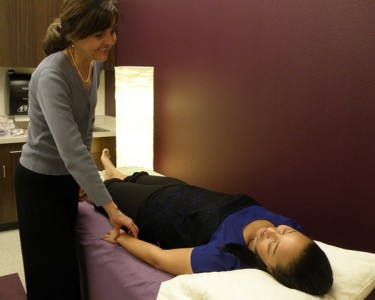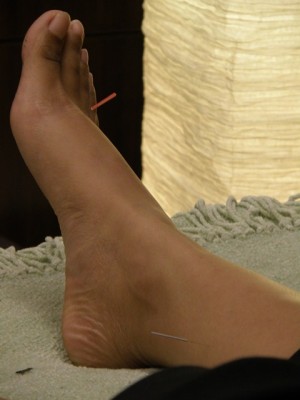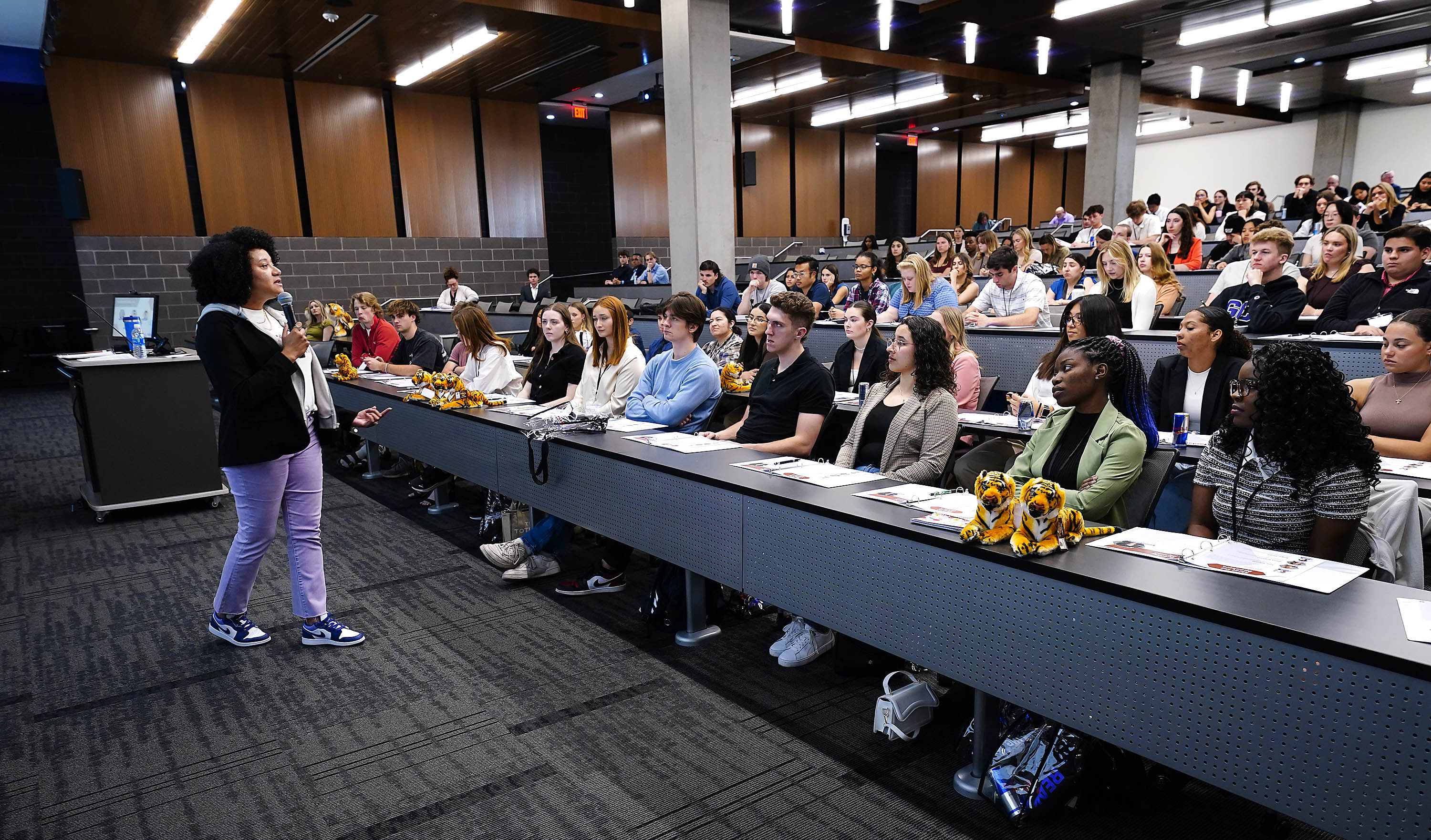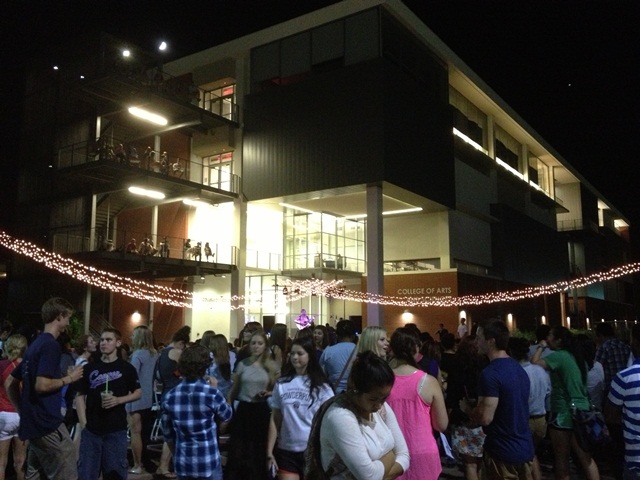By Bob Romantic
GCU News Bureau
The patient came to Dr. Patricia Johnson just before the holidays, seemingly at the end of her rope.
A mom who also worked full-time, she was always on the go, but migraines had taken over her life. Chiropractic adjustments and massage therapy helped some, and she was on medication, but still the headaches came. And if there was a change in the weather? Forget it. Like clockwork, she braced herself for the next migraine.
That led her to Johnson, an acupuncturist who is bringing her practice to the GCU Health Center.
After her second treatment session with Johnson, those migraine symptoms had gone away. After the third session, Johnson said the patient decided she no longer needed to take her regular medication. And now, about a month later, she no longer fears the weather.
“I still get chills when someone turns around that quickly,” said Johnson, a GCU graduate and former instructor with the University. “I hope that feeling never wears off.”
Acupuncture is an alternative medical practice originating in China that treats patients by manipulating thin needles into pressure points in the body. The practice is based on the premise that there are patterns of energy flow (or Qi) through the body that are essential for health. Disruption of this flow is responsible for pain and disease. Acupuncture is used to correct imbalances of this flow.
Acupuncture is not a miracle cure – it has been around for more than 2,500 years -- but Johnson said it can have significant effects on some people. It has been used to treat conditions such as addiction, allergies, arthritis, asthma, back pain, Crohn’s disease, depression, digestive disorders, fibromyalgia, hemorrhoids, hip pain, insomnia, knee pain, menopausal symptoms, menstrual pain, migraine headaches, post-traumatic stress disorder, sinus congestion, shoulder pain, sciatica, sore throat and stress.
“Acupuncture is simple but complex at the same time. It’s so profound,” Johnson said. “With traditional Western medicine, it takes a long time to learn but it’s quick to master. With Chinese medicine, it’s quicker to learn but takes a lot longer to master.
“It allows me to be a lifelong learner.”
Johnson has a private practice (Papillon Acupuncture) in Scottsdale, is an instructor at the Southwest College of Naturopathic Medicine (where she got her doctoral degree) and already takes her practice to Arizona State University one or two days per week.
Coming to GCU was a natural fit. She was an instructor for the University’s College of Health Sciences and recently completed her bachelor of science degree in nursing through the College of Nursing and Health Care Professions.
“Students really respond well to acupuncture,” said Johnson, who got her master’s degree at the Phoenix Institute of Herbal Medicine and Acupuncture. “They don’t have layers of stuff that people in their 40s and 50s do. And they’re open to new approaches and ideas.”
Johnson will be available for appointments with GCU students and employees from 1 to 5 p.m. on Wednesdays (call 602-639-6215 for an appointment). That time frame could expand if demand rises. There is a fee for the sessions; patients should check with their insurance provider to see if it is covered.
Connie Colbert, director of the GCU Health Center, said she wants to bring more wellness aspects to the services the center provides.
“I have some patients who already do acupuncture,” Colbert said. “It helps a lot of people, even in conjunction with traditional medicine.
“We’re just looking to expand the services we provide any way we can to help the GCU community.”
Contact Bob Romantic at 639.7611 or [email protected].
















































